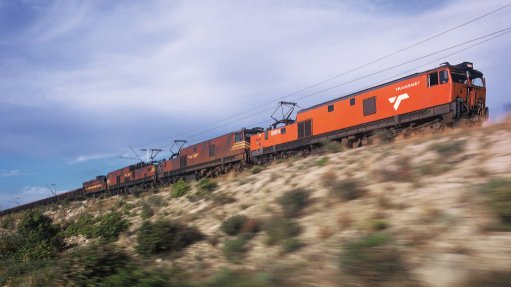Diesel tax refund system should be simplified – KPMG
As the National Treasury and the South African Revenue Service (Sars) work to streamline the current diesel refund system, KPMG believes the development of a more simplified and concise refund framework is needed, particularly in reference to mining sector beneficiaries.
The current Sars diesel refund system provides qualifying primary producers in the agriculture, forestry, fishing and mining sector a full refund of the Road Accident Fund levy and a partial refund of the fuel levy for every litre of diesel consumed.
However, industry and Sars stand divided currently on the practicality of the diesel refund system and the interpretation of the governing legislation and, following the emergence of “several anomalies”, the National Treasury in February published a ‘Discussion Document on the Review of the Diesel Fuel Tax Refund System’ for public comment and further consultation.
The diesel refund system has faced several technical, administrative and legal challenges, some of which were still under way, as a result of differences in interpretation, besides others, noted KPMG South Africa Tax and Legal associate director for trade and customs Llewellyn Jordaan.
The focus of the system should change, he told delegates at a KPMG-hosted mining-focused diesel refund workshop, adding that qualifying activities and beneficiaries needed to be unambiguous and the solutions employed to improve the system simplified.
“[There is a need] to develop a system that is quite clear and not open to interpretation,” he commented.
The shared value-added tax (VAT) administration, logbook compliance and authorisation of primary production, as well as outsourcing of operations, were the main concerns outlined in the discussion document, Jordaan pointed out.
Seeking further stakeholder input, KPMG highlighted the current concerns of industry, which included the eligibility of the beneficiary of the refund, which is stipulated as the mining right-holder for its own production facilities, effectively sidelining joint venture subsidiaries, dry and wet contracting and appointed contractors.
Further, in the mining industry, logbook record-keeping for certain mining equipment can be "an insurmountable task", and keeping track of the volumes and percentages of equipment's sometimes divided workload is near impossible.
In addition, the system is limited somewhat by the exclusion of processing, particularly crushing and screening, which is an integral part of mining activities. In fact, no secondary mining activities are listed as eligible for the tax benefits.
“There is a need to define the eligible activities,” Jordaan said.
An idea that emerged from the workshop as alternative solution included focusing on the registration of the mine’s diesel-consuming vehicles and equipment, as opposed to keeping a record of eligible activities, as such vehicles were used for core mining activities.
KPMG is compiling its response submission for consideration to the National Treasury, listing this and other suggestions obtained from industry during the workshop.
The National Treasury had tabled its own proposed reforms, including qualifying primary production activities rather than users, for which an indicative list of the type and nature of qualifying activities, and use by primary producers, is being finalised.
Further, the suggested reforms include the inclusion of contractors, as well as a standalone diesel refund administration system that is separate from the VAT system.
The document also highlighted administrative enforcement and taxpayer compliance, wherein beneficiaries will be expected to maintain their diesel refund registration profiles electronically to validate their claims. Diesel refunds will, moreover, only be allowed in respect of diesel dispensed from storage facilities formally on record with Sars, to diesel-powered equipment and vehicles also formally on record with Sars.
The National Treasury set May 15 as the deadline for the submission of comments.
Comments
Announcements
What's On
Subscribe to improve your user experience...
Option 1 (equivalent of R125 a month):
Receive a weekly copy of Creamer Media's Engineering News & Mining Weekly magazine
(print copy for those in South Africa and e-magazine for those outside of South Africa)
Receive daily email newsletters
Access to full search results
Access archive of magazine back copies
Access to Projects in Progress
Access to ONE Research Report of your choice in PDF format
Option 2 (equivalent of R375 a month):
All benefits from Option 1
PLUS
Access to Creamer Media's Research Channel Africa for ALL Research Reports, in PDF format, on various industrial and mining sectors
including Electricity; Water; Energy Transition; Hydrogen; Roads, Rail and Ports; Coal; Gold; Platinum; Battery Metals; etc.
Already a subscriber?
Forgotten your password?
Receive weekly copy of Creamer Media's Engineering News & Mining Weekly magazine (print copy for those in South Africa and e-magazine for those outside of South Africa)
➕
Recieve daily email newsletters
➕
Access to full search results
➕
Access archive of magazine back copies
➕
Access to Projects in Progress
➕
Access to ONE Research Report of your choice in PDF format
RESEARCH CHANNEL AFRICA
R4500 (equivalent of R375 a month)
SUBSCRIBEAll benefits from Option 1
➕
Access to Creamer Media's Research Channel Africa for ALL Research Reports on various industrial and mining sectors, in PDF format, including on:
Electricity
➕
Water
➕
Energy Transition
➕
Hydrogen
➕
Roads, Rail and Ports
➕
Coal
➕
Gold
➕
Platinum
➕
Battery Metals
➕
etc.
Receive all benefits from Option 1 or Option 2 delivered to numerous people at your company
➕
Multiple User names and Passwords for simultaneous log-ins
➕
Intranet integration access to all in your organisation

















